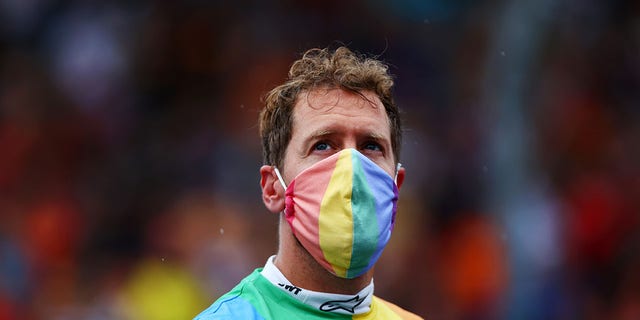F1 drivers prevented from making political statements without approval
Formula One drivers will now need permission in order to make political statements at racing events.
FIA, the federation that governs Formula One and other racing series, updated its International Sporting Code for the 2023 season and included a new article stating that political, religious and personal statements require written approval.
“The general making and display of political, religious and personal statements or comments notably in violation of the general principle of neutrality promoted by the FIA under its Statutes, unless previously approved in writing by the FIA for International Competitions, or by the relevant ASN for National Competitions within their jurisdiction,” the new articles states.
GEORGE RUSSELL PICKS UP FIRST CAREER F1 VICTORY: ‘I AM CRYING, BOYS AND GIRLS’
Multiple drivers have made statements with their clothing in past years, including star driver Lewis Hamilton.
Hamilton, a seven-time Formula One champion, wore a T-shirt with the message “Arrest the cops who killed Breonna Taylor” at the Tuscan Grand Prix in 2020.

Four-time world champion Sebastian Vettel wore a rainbow-colored T-shirt with the words “Same Love” across the front in 2021.
“The ISC has been updated in alignment with the political neutrality of sport as a universal fundamental ethical principle of the Olympic Movement, enshrined in the International Olympic Committee (IOC) Code of Ethics, together with the principle of the universality set out in Article 1.2,” the FIA said in a statement, according to ESPN.

“Additionally as stated in Article 1.2 of the FIA Statutes, the FIA shall promote the protection of human rights and human dignity, and refrain from manifesting discrimination on account of race, skin colour, gender, sexual orientation, ethnic or social origin, language, religion, philosophical or political opinion, family situation or disability in the course of its activities and from taking any action in this respect.
“The FIA will focus on underrepresented groups in order to achieve a more balanced representation of gender and race and to create a more diverse and inclusive culture.”
Read the full article Here


